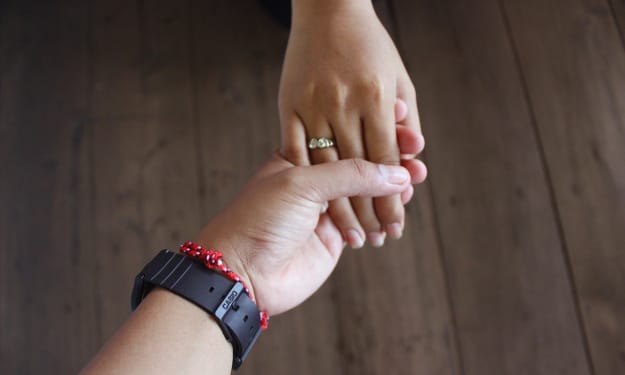Is a Rejection Mindset Dooming Your Online Dating?
Best for online dating
Dating can be daunting. It’s often hard to find someone you connect with—let alone love and spend the rest of your life with. So, you likely turned to online dating. After all, it’s increasingly common for relationships to begin online, and the couples from the dating app commercials seem so happy, right? But with each bad date and late-night reflection on your relationship preferences and dealbreakers, your dating pool may start to resemble a small puddle.
Luckily, you’re not alone in your frustration with dating. According to the 2019 American Trends Panel, a nationally representative survey of Americans, many singles report mixed feelings about their dating experience. Forty-three percent of single people say looking for dates and a relationship was not going well. And 47 percent of singles say dating is harder today than it was 10 years ago. Not surprisingly, approximately a third of singles have turned to online dating.
But among online daters, 10 percent lament the role of technology and how impersonal dating has become. Thirty-seven percent of frustrated daters hate how people misrepresent themselves online. Fourteen percent miss the real, emotional connection that traditional dating may provide. Furthermore, 11 percent say online dating is not a good way to meet people, and 10 percent say there are just too many options for people to date. Finally, 10 percent of online daters dislike how some people use online dating for casual sex or “hookups.”
Interestingly, of the singles who say dating is easier today than it was 10 years ago, 41 percent attribute it to technology. Twenty-nine percent of daters say it’s so much easier to meet new people, and 37 percent love how online dating expands their pool of potential partners. Others like how online dating makes it easy to get to know someone before asking them out on a date. In fact, 61 percent of married couples today report having met their partner via an online dating website or app.
So, it appears people have mixed feelings and experiences about online dating. Many people find love, but many others experience frustration and pessimism. If you’re the latter and are thinking about quitting online dating, here’s what to know about rejection mindsets before you throw in the towel.
Rejection is common via online dating. This is partly due to the large number of potential partners you have access to when dating online. The more conversations, winks, or right-swipes you initiate, the more opportunities there are for others not to reciprocate your interest. Logistically, if dating is a “numbers game,” then the more you play, the more rejection you’ll experience. It’s normal for unrequited love to hurt, but new research in psychology suggests rejection via online dating may be due to the sheer volume of potential partners.
Online daters are more likely to use a “rejection mindset” when dating online. Traditionally, when people meet a potential romantic partner at a party or are introduced through a friend, they tend to ask, “Why should I date this person?” But when people evaluate many options sequentially—which is common on dating apps like Match.com or Tinder—people tend to adopt a rejection mindset. They tend to ask, “Why should I reject this person?” and look for ways to narrow down the list of potential partners. To avoid a rejection mindset, research suggests the ideal number of options to present is approximately 20 to 50.
In a recent study published in Social Psychological and Personality Science, psychologists Tila Pronk and Jaap Denissen presented single, heterosexual participants with pictures of potential romantic partners online. Half of the participants were presented with 45 potential partners (an ideal number), whereas the other half of the participants were presented with 90 potential partners, twice as many as ideal. For each potential partner, participants accepted or rejected them by clicking a green heart or red cross.
Findings revealed that when participants were presented with too many options, they were more likely to reject them. Participants adopted a rejection mindset, such that acceptances decreased an average of 27 percent when evaluating the last, rather than first, partner in a list. In later studies, the researchers also found that a rejection mindset explained daters’ low satisfaction and success with online dating. For women, in particular, a rejection mindset resulted in fewer overall matches.
So, when dating online, it seems beneficial to limit the number of profiles you review within a single sitting. After all, research suggests optimistic scrolling may turn to doom scrolling after about 50 people’s profiles. Finally, feelings of frustration and pessimism with online dating are common. Try to look for reasons to accept, rather than reject, others online because they may feel just like you, wanting to throw in the towel before ever finding love.






Comments
There are no comments for this story
Be the first to respond and start the conversation.